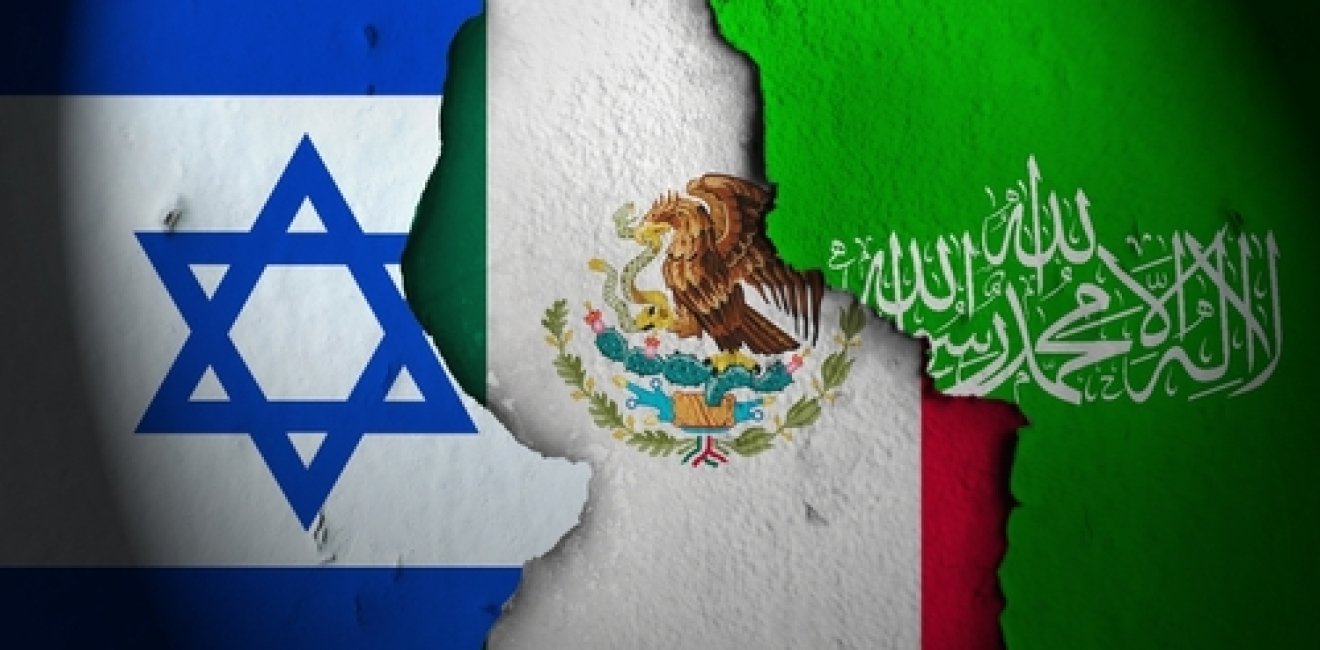In the immediate aftermath of the October 7 Hamas attack on Israel, the Mexican foreign ministry issued a statement “unequivocally” condemning it. The October 8 statement said that “any terrorist act” is a “threat to international peace and security” and that “all States” should cooperate to “prevent and punish them”. It recognized Israel’s right to “legitimate self-defense” while also condemning the use of force against civilians by all sides and reaffirming Mexico’s long-standing support for a two-state solution to the conflict.
The very next day, President Andres Manuel Lopez Obrador (widely known as AMLO), walked back this condemnation of the Hamas attack. In his morning press conference, he announced Mexican neutrality in the conflict stating, “we do not want to take sides” and that “more than condemnations, what is required is a search for peaceful solutions”. He enunciated Mexico’s long-standing tradition of opposing intervention but also supporting self-determination and the peaceful resolution of disputes. He argued that neutrality would allow Mexico to play a role in the search for a peaceful solution to the crisis.
What explains AMLO’s decision to water down his foreign ministry’s initial statement and refuse to directly condemn the attack? How does this square with Mexico’s more activist and interventionist foreign policy in the Americas? And what does it mean for Mexican foreign policy in the future?
President Lopez Obrador’s decision is not unique in Mexican history but instead reflects a position held by every Mexican government for nearly a century, with the exceptions of the Presidential administrations of Felipe Calderon (2006-2012) and to a lesser extent Enrique Peña Nieto (2012-2018). As a developing economy whose national security could only be threatened by its northern neighbor, Mexico long took refuge in five foreign policy principles: non-intervention, self-determination, national sovereignty, the legal equality of all countries, and the peaceful resolution of disputes. These principles were designed to encourage the United States to tie its own hands rather than exploit the bilateral power differential and force Mexico to take positions beneficial to the United States but contrary to Mexican national interests (something the U.S. had done historically). And lacking significant international global interests beyond the United States, Mexico could rely on foreign policy based on principles rather than interests.
Beginning in the 1960s, this foreign policy was coupled with support for leftist regimes, mostly in Latin America. This allowed a conservative government that claimed lineage to the Mexican Revolution to reinforce its domestic legitimacy by being revolutionary in its support for leftist governments abroad. For example, Mexico is the only Latin American to have never broken diplomatic relations with the Castro regime in Cuba, it provided refuge to leftist politicians fleeing the 1973 military coup in Chile and supported the Sandinista regime in Nicaragua. Although Mexico no longer is an authoritarian regime with a closed economy, the tendency to rely on a principled foreign policy and avoid global conflict is deeply rooted, and it is embedded in the constitution. Even Mexico’s first democratically elected opposition president, Vicente Fox (2000-2006), reverted to this tradition in response to the 9/11 terrorist attacks against the United States. Not unlike today, the Mexican foreign ministry issued a statement expressing condemnation of the attacks and recognizing the U.S. government’s right to respond. President Fox, however, while formally condemning the attacks, refused to back the U.S. right to respond and instead called for a peaceful resolution of the dispute.
Presidents Calderon broke with this tradition and staked out Mexican positions on global developments while opposing leftist authoritarian regimes in Latin America, and President Peña Nieto followed suit, albeit less aggressively. AMLO, however, is a political child of the past. He sees foreign policy mostly as domestic policy tool to legitimate his Fourth Transformation suite of policies and to ensure the victory of his candidate in the 2024 presidential election. While AMLO paid little attention to foreign policy during the first three years of his presidency, a significant political setback in the 2021 midterm elections forced a change. AMLO has since taken charge of an activist foreign policy in support of leftist governments in Latin America designed to energize his nationalist, leftist base. Yet he avoids taking firm positions on global conflicts that offer no domestic political benefit and violate the constitution.
This foreign policy is unlikely to change significantly after the 2024 election. While the opposition presidential candidate, Xochitl Galvez, issued a strong statement condemning the Hamas attacks and expressing solidarity with Israel, she is currently far behind in the polls without an obvious path to victory. It is much more likely that AMLO’s chosen successor, Claudia Sheinbaum, will be Mexico’s next President and she fully backs AMLO’s position. At the same time, most Mexicans are accustomed to this traditional foreign policy and thus tend to support it. In short, Mexico will continue being Mexico on the world stage.
Author

Professor of the Practice of Political Science and International Relations, USC Dornsife College of Letters, Arts, and Sciences; Fellow, Center on Public Diplomacy and Professor, University of Southern California; Adjunct Fellow for Mexico and U.S.-Mexico Affairs, Pacific Council on International Policy

Mexico Institute
The Mexico Institute seeks to improve understanding, communication, and cooperation between Mexico and the United States by promoting original research, encouraging public discussion, and proposing policy options for enhancing the bilateral relationship. A binational Advisory Board, chaired by Luis Téllez and Earl Anthony Wayne, oversees the work of the Mexico Institute. Read more

Explore More
Browse Insights & Analysis
Did the 20th Century Just End? One Historian’s Perspective

Political Turmoil in Pakistan: No End in Sight

Romanian Court Annuls Presidential Election Results Following Russian Interference Allegations

